
Fuels
metrics 2024
Empowering a Greener Tomorrow through Fuel Science
Introduction
Fuels is a premier open-access journal published by MDPI, focusing on the multifaceted field of fuel science, technology, and applications. Since its inception in 2020, this journal (E-ISSN: 2673-3994) has rapidly become a vital resource for researchers, professionals, and students engaged in the exploration of sustainable fuel alternatives, combustion technologies, and energy conversion processes. Located in Basel, Switzerland, Fuels aims to disseminate high-quality research that not only advances academic understanding but also addresses real-world energy challenges. By embracing an open-access format, it ensures that significant findings are readily available to the global scientific community, helping to foster collaboration and innovation in the transition to cleaner energy solutions. With an emphasis on interdisciplinary research and practical applications, Fuels is poised to be a leading journal that shapes the future of energy technologies.
Metrics 2024
 -
- 2.70
2.70 2.60
2.60 -
-Metrics History
Rank 2024
IF (Web Of Science)
JCI (Web Of Science)
Quartile History
Similar Journals
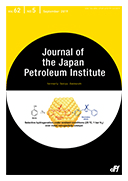
JOURNAL OF THE JAPAN PETROLEUM INSTITUTE
Empowering the Next Generation of Energy InnovatorsJOURNAL OF THE JAPAN PETROLEUM INSTITUTE, published by the Japan Petroleum Institute, is a leading scholarly journal dedicated to advancing research and innovation in the fields of Energy Engineering, Fuel Technology, and related disciplines. With an ISSN of 1346-8804 and an E-ISSN of 1349-273X, the journal has established a significant presence within the academic community, recognized for its impact and rigor, as evidenced by its Q3 quartile rankings in both Energy Engineering and Power Technology and Fuel Technology as of 2023. The journal, which converges research from 2002 to 2024, provides a vital platform for researchers, professionals, and students to share their findings and insights into petroleum-related challenges and advancements. While specific metrics such as HIndex are not stated, the journal's inclusion in leading academic databases reflects its commitment to quality and accessibility in research dissemination. Readers can view the journal's open access options to engage with cutting-edge studies that contribute to the sustainable advancements in energy resources and technology. Situated in Tokyo, Japan, this journal continues to play an essential role in fostering dialogue and discovery within the petroleum research community.

Journal of the Korean Society of Combustion
Igniting Innovation in Combustion ScienceThe Journal of the Korean Society of Combustion, published by the esteemed Korean Society of Combustion, is a pivotal platform that disseminates groundbreaking research in the field of combustion science. With its ISSN 1226-0959 and E-ISSN 2466-2089, this journal serves as a reliable source for both theoretical developments and practical applications pertaining to combustion technologies. As part of the thriving research community in South Korea, the journal plays a crucial role in advancing knowledge on combustion processes, alternative fuels, and emissions reduction technologies. Researchers, professionals, and students alike benefit from the journal's commitment to high-quality publications that foster innovation and collaboration within the interdisciplinary realms of energy and environmental sciences. While currently not an open-access journal, the Journal of the Korean Society of Combustion ensures that its content remains accessible to a broad audience through institutional subscriptions and partnerships, reinforcing its impact in the academic community.
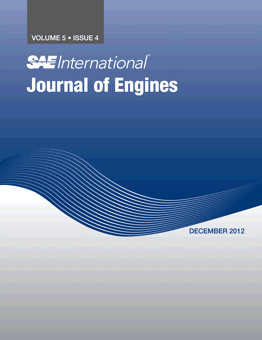
SAE International Journal of Engines
Unleashing Insights into Engine Efficiency and EmissionsSAE International Journal of Engines, published by SAE International, serves as a leading platform in the field of automotive engineering and fuel technology. Established in 2008, this journal has quickly gained recognition, achieving a Q2 ranking in Automotive Engineering and a Q3 ranking in Fuel Technology as of 2023. With the journal's ongoing commitment to advancing the understanding of engine technologies, it encompasses a diverse range of topics including engine performance, emissions, fuels, and innovative technologies driving the automotive industry. Researchers and professionals can benefit from the high-quality peer-reviewed articles that the journal features, while the comprehensive content serves as an invaluable resource for students engaged in automotive studies. Although it does not currently offer open access, the journal's credibility is further reinforced by its respectable Scopus rankings, indicating its significant impact within the academic community. For anyone seeking to stay at the forefront of engine research and automotive advancements, the SAE International Journal of Engines is an essential resource.
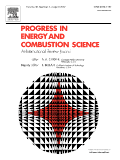
PROGRESS IN ENERGY AND COMBUSTION SCIENCE
Exploring sustainable solutions in combustion science.PROGRESS IN ENERGY AND COMBUSTION SCIENCE, published by PERGAMON-ELSEVIER SCIENCE LTD, stands as a premier journal in the realms of energy engineering and fuel technology, with an impressive impact factor and recognition across multiple scientific disciplinary matrices. Since its inception in 1975 and continuing through 2024, this esteemed publication has contributed significantly to the advancement of knowledge in energy resources, combustion processes, and their applications in modern technology. With a robust ranking of Q1 in key categories such as Chemical Engineering, Energy Engineering and Power Technology, and Fuel Technology, the journal consistently showcases high-quality research that influences both academia and industry. Researchers, professionals, and students benefit from its rigorous peer-reviewed articles, which foster a deeper understanding of energy-related challenges and innovations. Although it is not an Open Access outlet, its relevance and contribution to the scientific community are undeniable, making it a vital resource for anyone engaged in the pursuit of sustainable energy solutions.

CHEMISTRY AND TECHNOLOGY OF FUELS AND OILS
Pioneering Research in Fuels and Oils for Sustainable ProgressCHEMISTRY AND TECHNOLOGY OF FUELS AND OILS, published by SPRINGER, is a pivotal journal dedicated to advancing the understanding and technologies surrounding fuels and oils. With its ISSN 0009-3092 and E-ISSN 1573-8310, this journal has been a reliable resource in the field since its inception in 1965, providing insights into the latest research and developments up until 2024. While it currently holds a Q4 status across various quartiles, including Chemical Engineering and Fuel Technology as of 2023, the journal's commitment to disseminating valuable knowledge plays a crucial role in nurturing the academic discourse surrounding energy and chemical processes. Although it does not offer Open Access, the journal is critical for researchers, professionals, and students aiming to deepen their expertise in energy engineering, chemical engineering, and fuel technology. Its contributions underlie significant advancements in sustainable energy practices and fuel innovations, making it an essential read for those engaged in these crucial scientific domains.
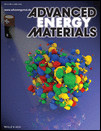
Advanced Energy Materials
Unveiling the Potential of Advanced Energy MaterialsAdvanced Energy Materials is a leading academic journal published by WILEY-V C H VERLAG GMBH, focusing on the rapidly evolving fields of materials science and renewable energy technologies. With an impressive impact factor and recognition as a top-tier journal, it ranks within the Q1 category in both Materials Science (miscellaneous) and Renewable Energy, Sustainability and the Environment as of 2023. Spanning from 2011 to 2024, the journal serves as an essential platform for researchers, professionals, and students eager to explore groundbreaking advancements in energy materials, fostering innovative solutions to global sustainability challenges. The journal's authoritative content is supported by rigorous peer review, ensuring high-quality research contributes to the academic community and beyond. Located in Weinheim, Germany, Advanced Energy Materials stands at the forefront of scientific inquiry, making it an invaluable resource for those invested in the future of energy and materials science.
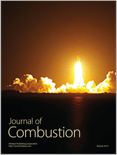
Journal of Combustion
Fueling Research for a Sustainable FutureJournal of Combustion is a premier academic journal dedicated to the field of combustion science and technology, published by HINDAWI LTD. With an ISSN of 2090-1968 and an E-ISSN of 2090-1976, the journal has been an open-access platform since 2008, ensuring that cutting-edge research is accessible to all. Based in the United States at Adam House, 3rd Flr, 1 Fitzroy Sq, London W1T 5HF, England, the journal publishes articles spanning various relevant disciplines, contributing to knowledge in Chemical Engineering, Fuel Technology, and Energy Engineering. As of 2023, it ranks in the Q3 quartile in Chemical Engineering (miscellaneous) and Fuel Technology, and in Q4 in Condensed Matter Physics and Energy Engineering and Power Technology, highlighting its growing impact and relevance in these fields. Researchers will find valuable insights as the journal converges its findings from 2010 to 2024. With a focus on promoting innovative approaches and exploring new frontiers in combustion research, the Journal of Combustion continues to be an essential resource for academics, professionals, and students committed to advancing the understanding and application of combustion processes.
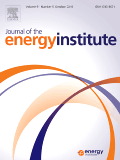
JOURNAL OF THE ENERGY INSTITUTE
Pioneering Research in Energy Engineering and TechnologyJOURNAL OF THE ENERGY INSTITUTE, published by Elsevier Science Ltd, is a leading interdisciplinary journal dedicated to the advancing fields of energy engineering and technology. With its ISSN 1743-9671 and E-ISSN 1746-0220, this journal has established a prominent reputation, evident from its impressive impact factor and strong rankings across multiple categories, achieving Q1 status in fields such as Condensed Matter Physics, Control and Systems Engineering, and Energy Engineering and Power Technology. As a pivotal resource for researchers, professionals, and students alike, the journal covers a comprehensive spectrum of topics in energy, including recent innovations in renewable energy technologies, sustainable practices, and advancements in fuel technologies. Researchers are encouraged to explore its open-access options for broad dissemination of knowledge, contributing to a more sustainable and energy-efficient future. With a converged history from 2004 to 2024, the JOURNAL OF THE ENERGY INSTITUTE remains a critical platform for cutting-edge research and development in the energy sector, promoting impactful solutions to global energy challenges.

Carbon Energy
Leading the charge in carbon energy research and innovation.Welcome to Carbon Energy, an esteemed open-access journal published by WILEY that focuses on cutting-edge research in the field of energy and materials science. Since its inception in 2019, this journal has quickly established itself as a leading platform for disseminating impactful findings and innovations related to carbon-based energy solutions, renewable resources, and sustainability practices. With its impressive Q1 rankings in multiple categories—including Energy (miscellaneous), Materials Chemistry, and Renewable Energy—Carbon Energy is recognized for delivering high-quality, peer-reviewed content that meets the rigorous standards of the academic community. Through its open-access model, the journal ensures wide accessibility of research findings, making it an invaluable resource for researchers, professionals, and students alike. As we look toward the future, Carbon Energy aims to further its mission of advancing sustainable energy technologies and promoting interdisciplinary collaboration in tackling global energy challenges.

Solid Fuel Chemistry
Fueling the Next Generation of Chemical EngineeringSolid Fuel Chemistry is a pivotal journal published by PLEIADES PUBLISHING INC, dedicated to advancing knowledge in the fields of chemical engineering, chemistry, and fuel technology. With its ISSN 0361-5219 and E-ISSN 1934-8029, this esteemed publication has been contributing to the scientific community since its inception, covering extensive research from 1975 to 2024. Operating within the Q3 and Q4 quartiles, it holds a significant position among peers in its categories, ranked 94th in Energy & Fuel Technology and 212th in General Chemical Engineering. Although it lacks an open access option, the journal remains a vital resource for researchers, professionals, and students eager to explore innovative developments in solid fuels and their applications. The articles published in Solid Fuel Chemistry provide essential insights, facilitate collaboration, and inspire further research, making it an indispensable platform for anyone engaged in this essential field of study.